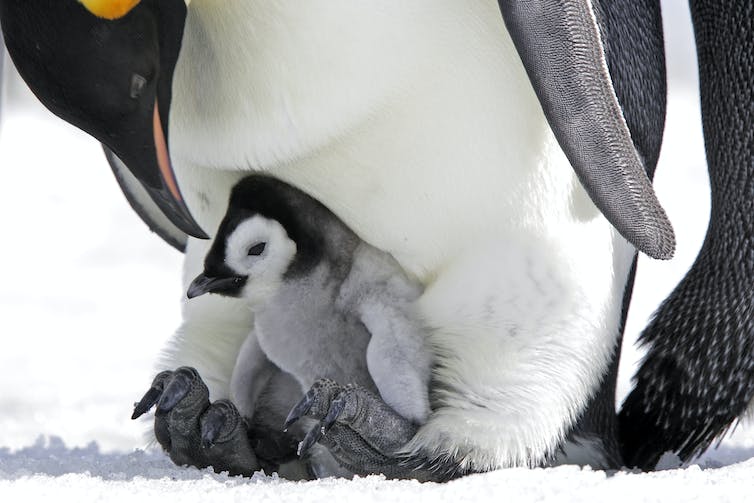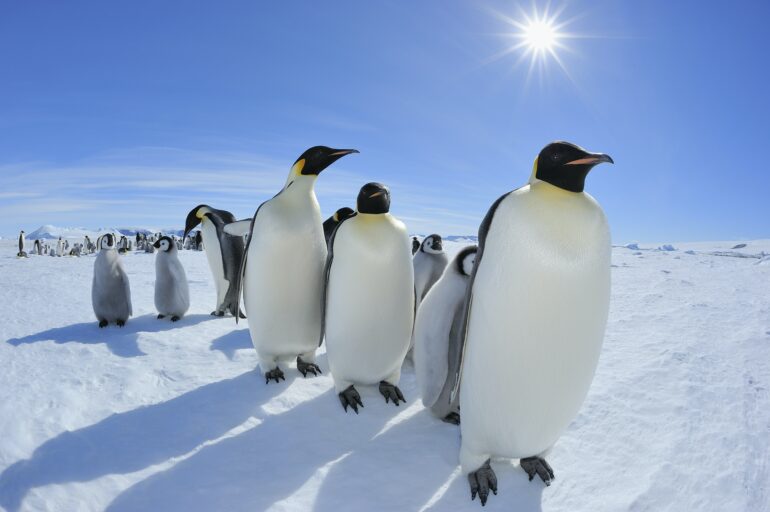Emperor penguins thrive on Antarctica’s coastlines in icy conditions any human would find extreme. Yet, like Goldilocks, they have a narrow comfort zone: If there’s too much sea ice, trips to bring food from the ocean become long and arduous, and their chicks may starve. With too little sea ice, the chicks are at risk of drowning.
Climate change is now putting that delicate balance and potentially the entire species at risk.
In a recent study, my colleagues and I showed that if current global warming trends and government policies continue, Antarctica’s sea ice will decline at a rate that would dramatically reduce emperor penguin numbers to the point that almost all colonies would become quasi-extinct by 2100, with little chance of recovering.
That’s why the U.S. Fish and Wildlife Service finalized a rule on Oct. 26, 2022, listing the emperor penguin as “threatened” under the Endangered Species Act, effective Nov. 25, 2022. The director of the service said the listing “reflects the growing extinction crisis.”

When the sea ice gets too thin, it can break out early and penguin chicks may drown.
Sylvain Cordier/DigitalVision via Getty Images
The greatest threat emperor penguins face is climate change. It will disrupt the sea ice cover they rely on unless governments adopt policies that reduce the greenhouse gases driving global warming.
The U.S. Endangered Species Act has been used before to protect other species that are primarily at risk from climate change, including the polar bear, ringed seal and several species of coral, which are all listed as threatened.
Emperor penguins don’t live on U.S. territory, so some of the Endangered Species Act’s measures meant to protect species’ habitats and prevent hunting them don’t directly apply. Being listed under the Endangered Species Act could still bring benefits, though.
It could provide a way to reduce harm from U.S. fishing fleets that might operate in the region. And, with expected actions from the Biden administration, the listing could eventually pressure U.S. agencies to take actions to limit greenhouse gas emissions. However, the Bureau of Land Management has never acknowledged that emissions from oil and gas extraction on public lands and waters could harm climate-imperiled species. It issued more than 3,500 oil and gas drilling permits in New Mexico and Wyoming on public land during the first 16 months of the Biden administration.
Marching toward extinction
I first saw an emperor penguin when I visited Pointe Géologie, Antarctica, during my Ph.D. studies. As soon as I set foot on the island, before our team unpacked our gear, my colleagues and I went to visit the emperor penguin colony located only a couple of hundred meters from the French research station – the same colony featured in the movie “March of the Penguins.”
We sat far away to observe them through binoculars, but after 15 minutes, a few…



